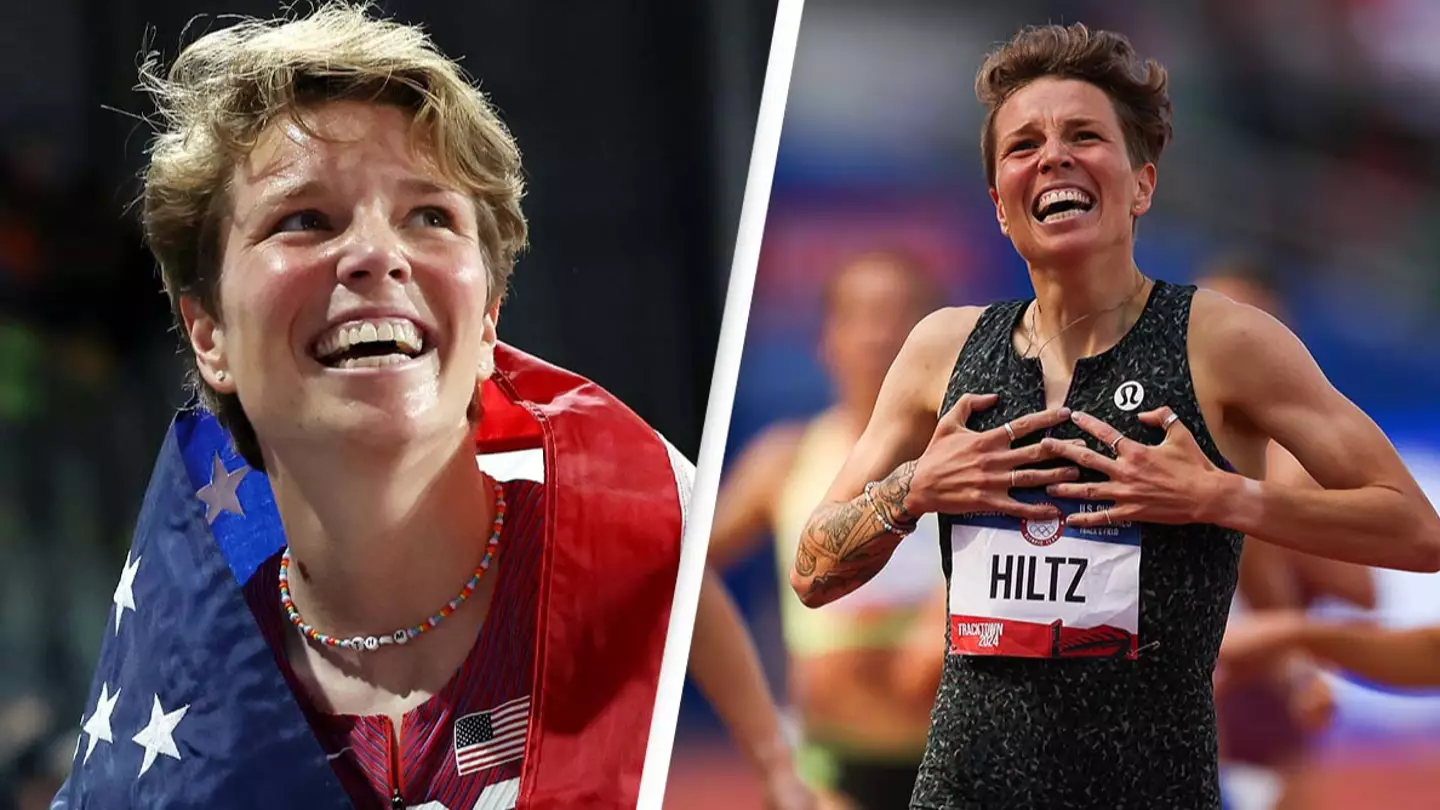Transgender athlete Nikki Hiltz has achieved a monumental milestone by qualifying for the 2024 Paris Olympics. Competing in the women’s 1500-meter race at the US Olympic Trials, Hiltz delivered an impressive performance by clocking the second fastest time ever by an American athlete in this event. They surpassed competitors Elle St. Pierre and Emily Mackay in a thrilling final sprint, finishing with a stellar time of 3:55:33.
In a heartfelt interview with NBC Sports post-race, Hiltz emphasized the significance of their achievement. “This is bigger than just me. It’s the last day of Pride Month. … I wanted to run this one for my community,” they remarked. Their victory was not just a personal triumph but a powerful statement during Pride, dedicated to the LGBT community. “All the LGBT folks, yeah, you guys brought me home that last hundred (meters). I could just feel the love and support,” Hiltz added.

Hiltz also acknowledged the high standards set by their competitors, particularly Elle St. Pierre, praising her for elevating women’s distance running. “I saw the time, and I didn’t think that was possible. We all had to rise because of her. … Awesome team we’re sending to Paris,” they said, reflecting on the strong team dynamics and mutual respect among the athletes.
Reveling in their success, Hiltz shared their excitement and gratitude on social media. “I’m not sure when this will fully sink in. All I know is today I’m waking up just so grateful for my people, overwhelmed by all the love and support, and filled with joy that I get to race people I deeply love and respect around a track for a living,” they expressed.
The International Olympic Committee has updated its policies regarding transgender athletes in 2021, allowing each sport’s governing body to set their regulations. World Athletics, in response, established a policy that prevents trans women who have undergone male puberty from competing in female track and field events. However, trans men can compete in male categories with proper gender identity declarations.

Sebastian Coe, the President of the International Association of Athletics Federations, emphasized the importance of fairness in these decisions. “Decisions are always difficult when they involve conflicting needs and rights between different groups, but we continue to take the view that we must maintain fairness for female athletes above all other considerations,” Coe stated. The policy notably does not mention non-binary athletes directly, but typically those assigned female at birth and not undergoing hormone therapy are allowed to compete in female events.
Nikki Hiltz’s qualification for the Paris Olympics is not only a personal accomplishment but also a landmark moment for inclusivity and representation in sports, resonating deeply within the LGBTQ community and beyond.

